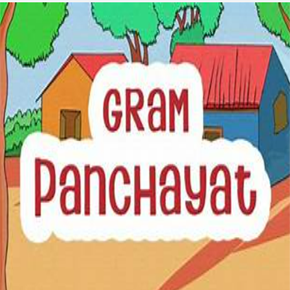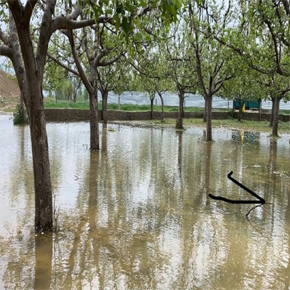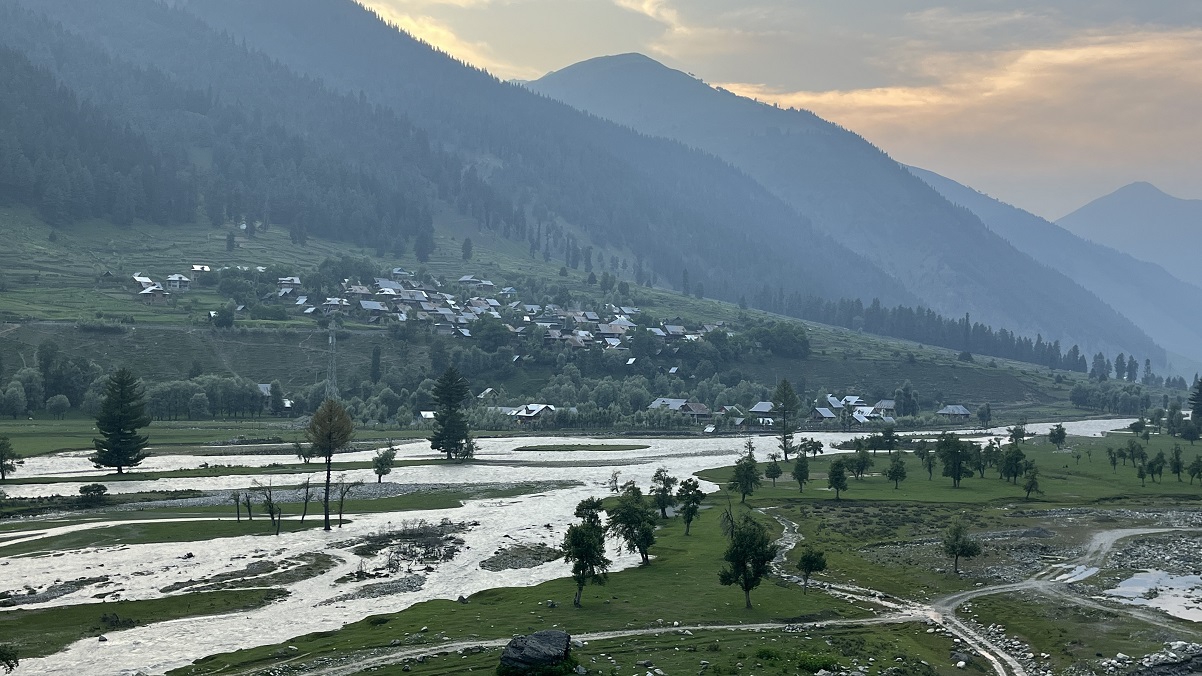Operationalising Biodiversity Committees
Create model BMCs at Village and District level so that Biodiversity Act 2002 is implemented in toto
IN response to official communication by Chairperson J&K Biodiversity Council under letter No: JKUT/BC/BMC/2021-22/521-23 Dated: 7.12.2021 , the Chairpersons of District Development Councils in J&K were asked to nominate a seven member team in every district for District Biodiversity Management Committee (BMC). Among these 7 members there has to be one Chairperson, two women members and one member from SC or ST community. A Secretary is also chosen from these members. In most of the districts these committees were constituted on the advice of DDC Chairpersons early this year but formal training has not been given to the members.
As weeklong activities in relation to World Environment Day are going on, it is the duty of Government particularly J&K Biodiversity Council to create model Biodiversity Management Committees (BMCs) at village panchayats , municipalities and district level so that Biodiversity Act 2002 is implemented in letter and spirit in these local bodies.
Members of BMCs are unaware of their role as of now. Consequently, the Biodiversity Act 2002 is not being operationalised on ground even after 20 years of its enactment.
The Biological Diversity Act, 2002 also called Biodiversity Act came into existence after India adhered to the objectives enshrined in the United Nations Convention on Biological Diversity (CBD) 1992. The CBD recognizes the sovereign rights of states to use their own biological resources.
Biodiversity Act, 2002
The Biodiversity Act was enacted in 2002. It aims at the conservation of biological resources, managing its sustainable use and enabling fair and equitable sharing of benefits arising out of the use and knowledge of biological resources with the local communities. The Act prohibits the following activities without the prior approval from the National Biodiversity Authority:
1) Any person or organisation (either based in India or not) obtaining any biological resource occurring in India for its research or commercial utilisation
2) The transfer of the results of any research relating to any biological resources occurring in, or obtained from, India.
3) The claim of any intellectual property rights on any invention based on the research made on the biological resources obtained from India.
The act envisaged a three-tier structure to regulate the access to biological resources:
The National Biodiversity Authority (NBA)
The State Biodiversity Boards (SBBs) or Biodiversity Council in case of Union Territories
The Biodiversity Management Committees (BMCs) at village , municipalities (towns, cities) or district level
Biodiversity Management Committees
Under Section 41(1) of the Biological Diversity Act, 2002, every local body in the State shall constitute a Biodiversity Management Committee (BMC) within its area of jurisdiction for the purpose of promoting conservation, sustainable use and documentation of biological diversity including preservation of habitats, conservation of land races, folk varieties & cultivars, domesticated stocks and breeds of animals and microorganisms and chronicling of knowledge relating to biological diversity.
The Biodiversity Management Committee (BMC) is to be constituted under section 41(1), shall consist of a Secretary and not more than six persons nominated by the local body, of whom not less than one third should be women and not less than 18% should belong to the Scheduled Castes/Scheduled Tribes. Provided that the members of the committee shall be the proven resident of the local body and their names should be included in the electoral roll of the concerned local body.
The Chairperson of the BMC shall be elected from amongst 06 nominated members of the committee in a meeting to be chaired by the Chairperson of the local body. The Chairperson of the local body shall have the casting votes in case of a tie.
The Secretary of the BMC shall be the Gram Sachiv (Panchayat Secretary) in Gram Panchayat or any person nominated by the Panchayat Department for Block and District BMCs.
The local Member of State Legislative Assembly and Member of Parliament would be special invitees to the meetings of the Committee.
The tenure of the BMC shall be maximum of 05 years and shall be co-terminus with the tenure of the local body, however, the existing BMC shall continue to function, until a new committee is constituted.
The BMCs shall hold a minimum of 4 meetings in a year and meet at least once in every 3 months. The meetings shall be chaired by the Chairperson of the BMC, and in his/her absence, by any other member elected by the members present. The quorum at every meeting shall be 03 including the Chairperson and excluding official Member (Secretary).
Peoples Biodiversity Register
The main function of the BMC is to prepare the People’s Biodiversity Register (PBR) in consultation with local people. The Register shall contain comprehensive information on availability and knowledge of local biological resources, their medicinal or any other use or any other traditional knowledge associated with them. The BMC shall be responsible for ensuring the protection of the knowledge recorded in PBR, especially to regulate its access to outside persons and agencies.In addition to preparation of the People’s Biodiversity Register (PBR), the BMCs in their respective jurisdiction shall also be responsible for the following :-
A) Conservation, sustainable use and access and benefit sharing of biological resources and eco-restoration of the local biodiversity.
B) Feedback/information to the Board and the National Biodiversity.
C) Authority in the matter of Intellectual Property Right (IPR), Traditional Knowledge and local Biodiversity issues. Management of Biodiversity Heritage Sites including Heritage Trees, Animals/ Micro organisms etc and Sacred Groves and Sacred Water bodies.
D) Regulation of access to the biological resources and/ or associated Traditional Knowledge, for commercial and research purposes. Conservation of traditional varieties/breeds of economically important plants/animals.
E) Biodiversity Education and Awareness building.Documentation, enable procedure to develop bio?cultural protocols.
F) To advise on any matter referred to by the State Biodiversity Board for granting approval, maintain data about the local vaids and practitioners using the biological resources.
Collection of Fees
The Biodiversity Management Committee (BMC) may levy charges by way of collection fees from any person for accessing or collecting any biological resource for commercial purposes from areas falling within its territorial jurisdiction. The Board shall provide guidance to the BMCs for the said purpose. As per sub section (1) of sec. 43 of the act, there shall be constituted a fund to be called ‘’Local Biodiversity Fund’’ at the level of local body, which shall be maintained and used for conservation and promotion of biodiversity as advised by the Board in the areas falling within the jurisdiction of the concerned local body and for the benefit of the local community, in so far as such use is consistent with conservation of biodiversity. All funds of the BMC shall be operated jointly by the Chairperson and the Secretary of the BMC. The Board shall lay down the guidelines for operation of the fund including ways to make its functioning transparent and accountable.
District level BMCs
Formal training of the committees constituted must start soon so that the members of district level BMC implement the Biodiversity Act in letter and spirit. Infact, Biodiversity Council should also train the village and municipal level BMCs as well so that these institutions are operational as well. As on date, majority of these institutions are not aware of their role and responsibilities under Biodiversity Act 2002.
The members who get fully trained in these local bodies can go on to become master trainers who can then create more trainers in other villages , towns and districts. With the active support of Chairperson J&K Biodiversity Council, Jammu & Kashmir will become model Union Territory vis a vis adhering to the provisions of this law.

























































































